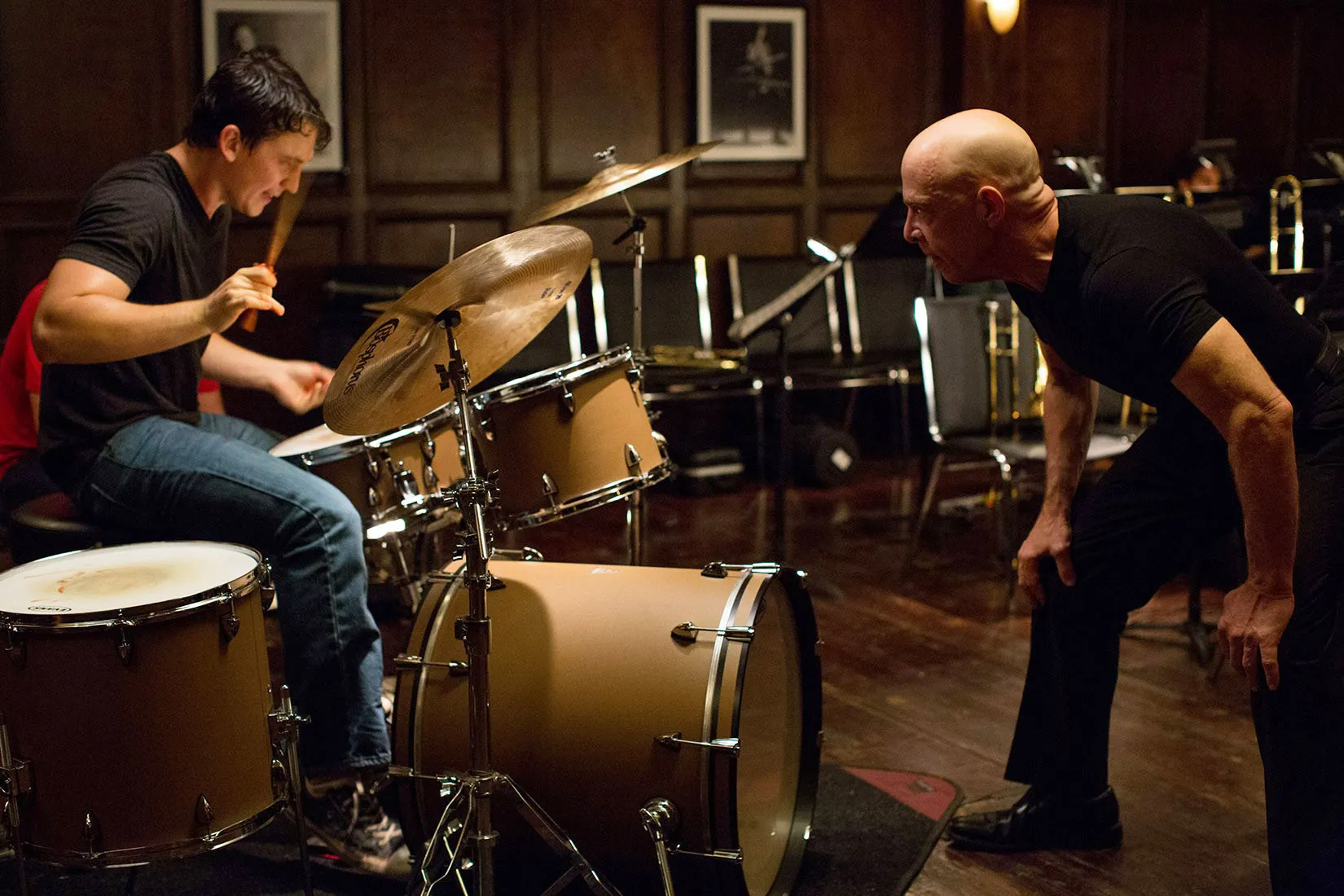With the Oscars coming up in about a month, now wouldn’t be a bad time to go over a film that the academy was all over nearly ten years ago, “Whiplash” (2014, directed by Damien Chazelle).

The movie is about a college student named Andrew (played by Miles Teller) wanting to become one of the jazz greats, and to do so he joins the fictional Shaffer Conservatory’s prodigious studio band as a first step in his journey.
Unfortunately, his first step might be his last, as the band’s director is a complete tyrant named Terence Fletcher (famously played by J. K. Simmons), who’s emotionally, verbally, and physically abusive to all of his players, expecting perfection from them, while at the same time setting them up to fail.
What the film is really good at is giving a constant sense of tension and fear, mainly because of Fletcher. The members of the band, and consequently the audience, are never sure what’ll set him off next, because all it takes is the tiniest of missteps to set this monster off in an ear-blistering rant full of insults and swearing.
At the same time, one can’t help but be enraptured in J.K. Simmons’ performance. The insults and verbal bullying he comes up with are on par with R. Lee Ermey in “Full Metal Jacket”. He does a great job making an antagonist you just love to hate.
Miles Teller also does a great job selling the transformation of Andrew from naive young college student to a man who’s willing to go to almost any extreme in order to measure up to Fletcher’s expectations.
Some examples of these extremes include becoming more cold and detached from other people in order to focus on his music, practicing until his hands are literally bloodied and blistered, or walking away from a car crash (that probably actually gave him whiplash) so he can make it to a rehearsal on time.
A nice touch in the film’s script is the cycle of the abuse. Very often it shows how aggressive and demeaning the musicians under Fletcher’s teaching are towards anyone in the same hemisphere as them if they think someone is a threat to their performance.
The movie also cleverly shows how afraid of Fletcher the band is, explaining why he still has a job and why nobody has reported him, which is sadly pretty realistic of how these situations tend to go.
The conflict of the film and Andrew’s journey forces the audience to ask themselves, “How far is too far in the chase of perfection?” Smartly, the film doesn’t give a clear answer and lets the audience decide this for themselves.
The sound mixing and soundtrack are also well done as there’s a lot of music (mostly Jazz) throughout the film that’s both diegetic (being played by characters in the film) and non-diegetic (the score/background music) that helps keep the viewer grounded in this world of jazz Andrew lives in.
With a film this good and this intense it’s no surprise that it got nominated for five academy awards (including best picture, best adapted screenplay, best supporting actor, film editing, and sound mixing). The film walked away with three Oscars (J.K. Simmons for best supporting actor, film editing, and sound mixing.)
An issue one might have with the film is that there are some loose ends with some characters, but that might be on purpose as the film is entirely from Andrew’s perspective. So those loose ends might be there to symbolize Andrew’s obsession with his drumming where everything and everyone else is unimportant.
It is a film carried by two phenomenal performances and definitely deserves a watch if one hasn’t seen it. Although be warned, themes of verbal, mental, and physical abuse are heavily present.

